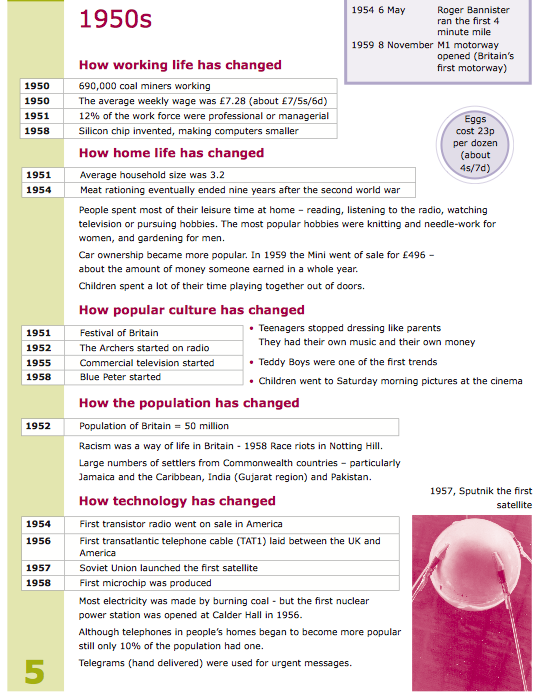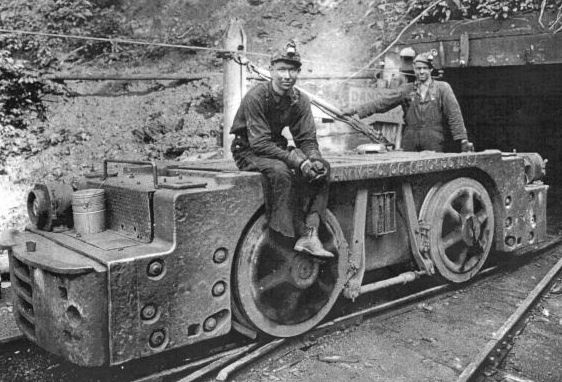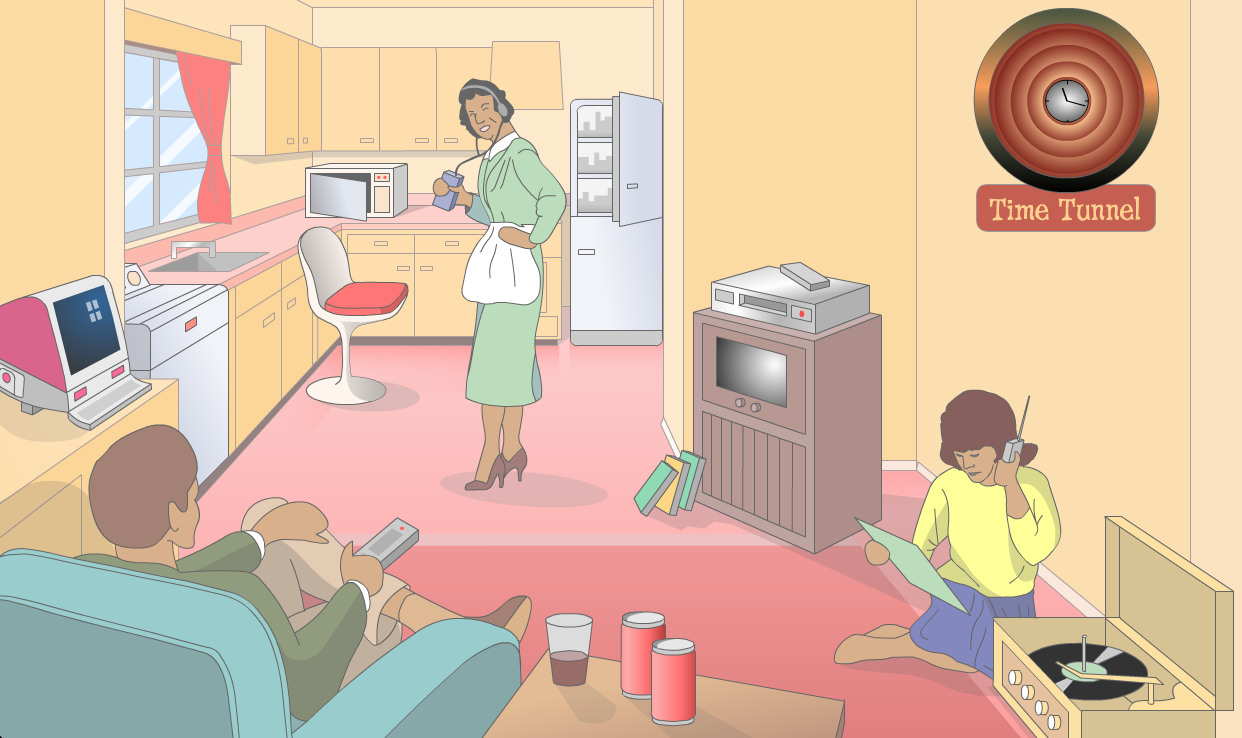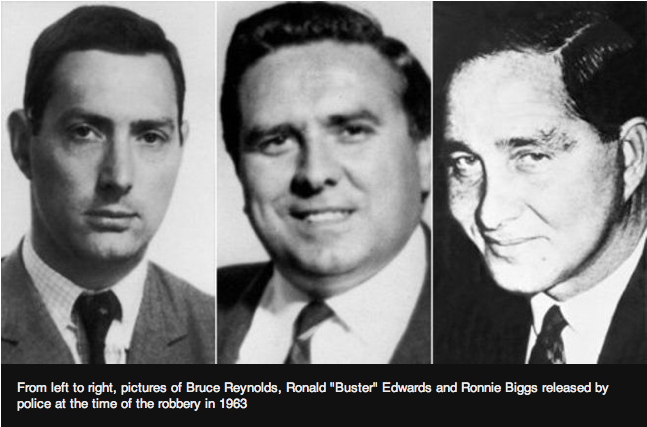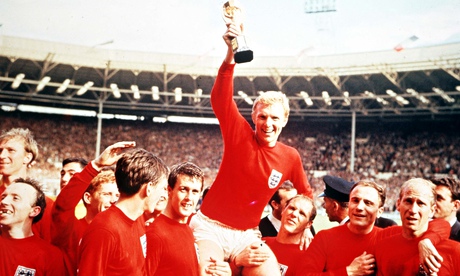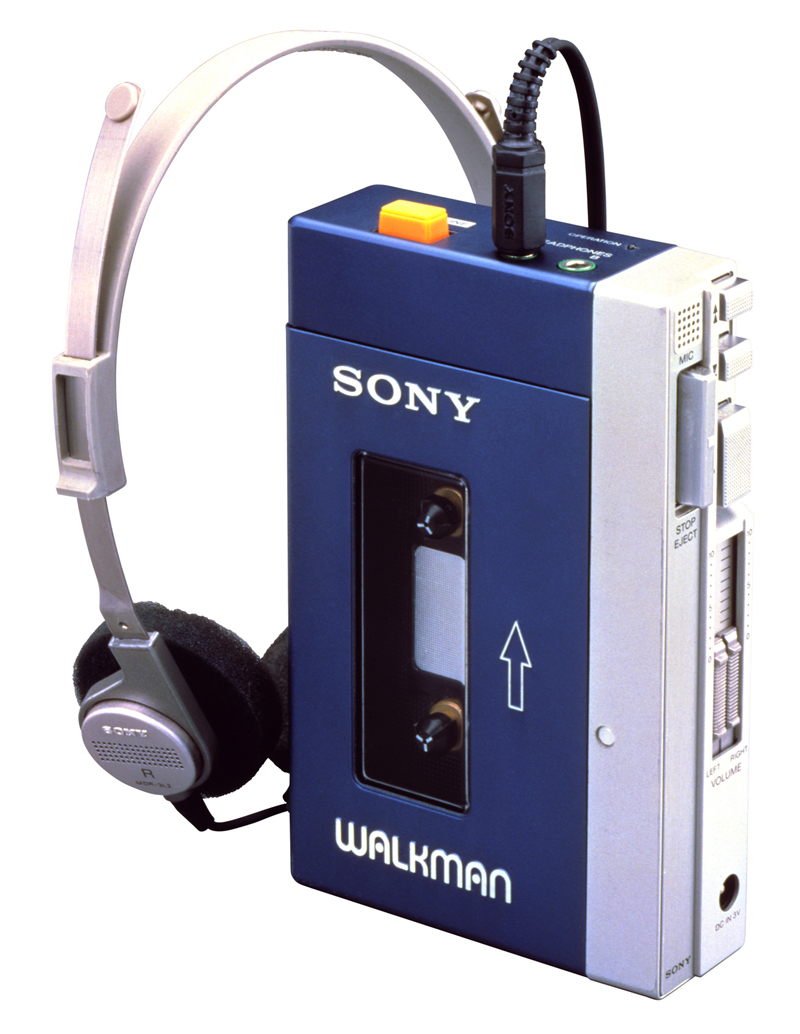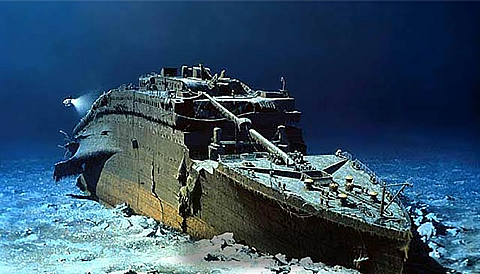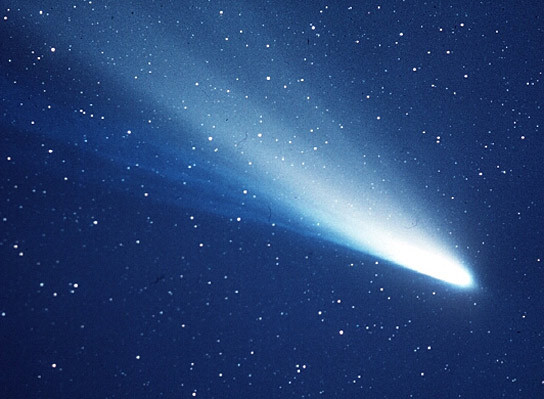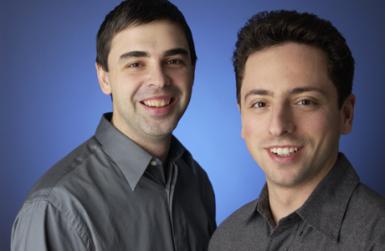Britain since 1950s
Britain Since 1950s
This is a fantastic resource booklet that lists key dates since the 1950s. The format is very easy to read and could be used for research.
The resource explores popular culture, home life, working life, technology and population through each decade for a more in-depth analysis.
Coal Miners
In 1950 there were 690,000 coal miners working across Britain. To see a map of the 19th Century coal fields click here.
Mining was a dangerous profession with terrible working conditions especially in the early 19th century. There were hazards and dangers everywhere; from explosions, fires, and roof falls, to suffocating gases and flooding.
Today
Coal mining employed 4,000 workers at 30 locations in 2013, extracting 13 million tonnes of coal. There are three pits in the UK, however there are plans to close two of them (to read the story click here) Coal is still a widely used energy source today but is not a ‘renewable energy source’ (waves and wind). To find out what coal is used for today click here.
To watch video footage of the coal miners click the resource image.
1950s Living Room
This activity allows your children to use their knowledge and decide which item is out of place in the 1950s picture. If an error is made an explanation for the item comes up to provide your KS1/KS2 children with more information.
Home Life in the 1950s
People spent most of their leisure time at home – reading, listening to the radio, watching television or pursuing hobbies. The most popular hobbies were needle work and knitting for women, and gardening for men.
Car ownership became more popular. In 1959 the Mini went of sale for £496 – about the amount of money someone earned in a whole year.
Children spent a lot of their time playing together outdoors.
The Great Train Robbery 1963
In the early hours of 8 August 1963, a gang of criminals robbed a Glasgow to London Royal Mail train at Ledburn in Buckinghamshire, England. £2.6million was stolen (approx £48million in today’s money) in one of the most famous heists in history.
The bulk of the haul was in £1 notes and £5 notes. Less than £400,000 was ever recovered.
The identity of the inside man has remained a mystery, known only as ‘The Ulsterman’. The Observer can revealed his name was Patrick McKenna, a Belfast-born post office worker.
The picture links to over two dozen photographs and captions for your children to read and learn more.
England Win 1966 World Cup
1966: Football glory for England
IN 1966, England won football’s World Cup for the first time since the tournament began in 1930.
A crowd of 93,000 spectators – including the Queen and Prince Phillip – filled London’s Wembley Stadium to watch the host nation play West Germany in the final game of the 1966 championships.
In the final moments of extra time Geoff Hurst powered home his third goal to give England a 4-2 victory and to become the first man ever to score a hat-trick in a World Cup final.
Bobby Moore went up to the royal box to collect the solid gold Jules Rimet (World Cup) trophy from Queen Elizabeth.
To read more click the image…
Moon Landing 1969
Neil Armstrong and Edwin “Buzz” Aldrin are the founding members of one of the world’s most exclusive clubs.
They were the first men ever to set foot on the Moon on 21 July 1969, and only another 10 followed them over the course of the next three-and-a-half years.
As he put his left foot down first Armstrong declared: “That’s one small step for man, one giant leap for mankind.”
He described the surface as being like powdered charcoal and the landing craft left a crater about a foot deep.
Margaret Thatcher First Lady Prime Minister 1977
The British Conservative Party chose Margaret Thatcher as its new leader.
She was the first woman to head a British political party after a landslide victory over the other four – male – candidates.
Mrs Thatcher – who served as Secretary of State for Science and Education in Ted Heath’s Government – exclaimed “It’s like a dream.”
The Walkman 1979
The image is the walkman. This was the first portable cassette player invented. By having a walkman, you were able to listen to music on-the-go.
To listen to different songs you would have needed to carry different cassettes with you.
Nowadays we have the iPod to listen to our songs, but in its time, this portable music player was the ‘bee’s knees’.
Personal Computers 1980s
More than a million personal computers had been sold around the world.
Questions
How does this computer compare to the options available today? Differences?
Why do you think computers have changed so much?
What are the benefits or a laptop or tablet?
Titanic Wreck Discovered
After the sinking of the Titanic on April 15, 1912, the great ship slumbered on the floor of the Atlantic Ocean for over 70 years before its wreckage was discovered. On September 1, 1985, a joint American-French expedition, headed by famous American oceanographer Dr. Robert Ballard, found the Titanic over two miles below the ocean’s surface.
Check out all our resources on Titanic by clicking on the image.
Halley's Comet 1986
Halley’s Comet is arguably the most famous of the known comets. It is a “periodic” comet which means that it returns to Earth’s vicinity about every 75 years. This makes it possible for some people to see it twice in his or her lifetime. The last time it was here was in 1986, and it is projected to return in 2061.
The comet is named after English astronomer Edmond Halley, who studied reports of a comet in Earth’s vicinity in years 1531, 1607 and 1682. After studies, Edmond concluded that these three comets were actually the same comet returning over and over again, and predicted the comet would come again in 1758.
Unfortunately, Halley didn’t live to see the comet’s return, but his discovery has inspired generations of astronomers and resulted in the comet being named after him.
To learn more follow the link on the image.
World Wide Web 1991
On 6 August 1991, Tim Berners-Lee launched the World Wide Web and it became publicly available. The goal was for the ‘internet’ to share information.
Today, the internet is used by 2.8 billion people around the world.
Questions
How has the internet changed learning?
How has the internet changed shopping?
Why is the internet useful in terms of communication?
How can the internet be a useful tool?
How can we be safe on the internet?
Google Launched 1997/1998
Yes I know Google isn’t exactly British History, but its impact on Britain has been monumental.
Larry Page and Sergey Brin meet at Stanford, California. Larry, 22, a university graduate, is considering the school; Sergey, 21, is assigned to show him around.
The very popular search engine called Google was invented by “The Google Guys’ Larry Page and Sergey Brin in 1998.
Google was named after a googol – the name for the number 1 followed by 100 zeros.
Nowadays, you can’t go one day without hearing the phrase “Google it”, which shows their dominance on the internet.
Discussion
How do you use Google?
What can google be used for?
Why do you think Google is so popular as a website? Research the other features of the site besides ‘Google Search’.
War on Terror 2001
In 2oo1, the prime minister Tony Blair announced after the twin tower attacks on America that the UK was “at war with terrorism.”
Terrorists hijacked a number of planes and flew two of them into the twin towers. The catastrophe is known as 9/11 after the date (11 september).
Since the attacks, security has greatly improved to prevent such an attack from happening again.
London Olympics 2012
London hosted the Olympic Games in 1908, 1948 and 2012. The 2012 Summer Olympics made London the first city to have hosted the modern Games of three Olympiads. London is the only city in the United Kingdom to have ever hosted the Olympics.
Team GB finished 3rd with 29 Gold medals, and 65 total medals, representing their best medal haul since London first hosted the Olympics in 1908.
To learn more click the image.

